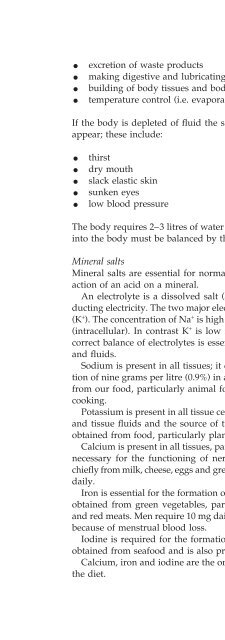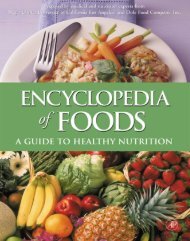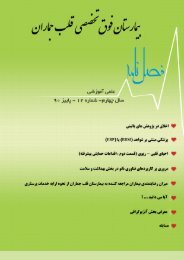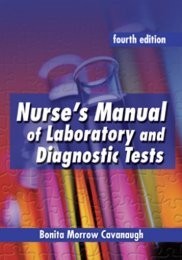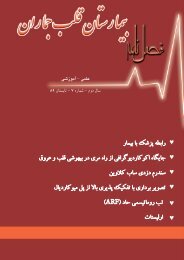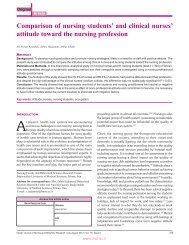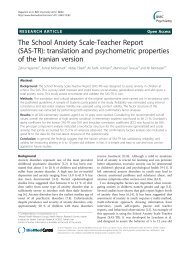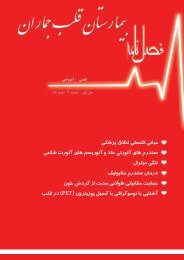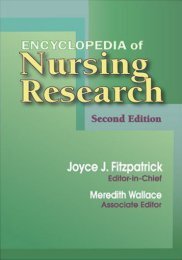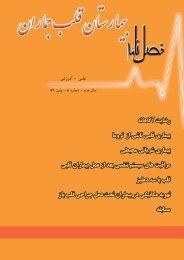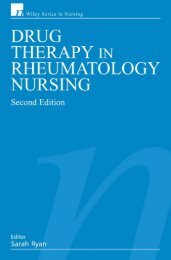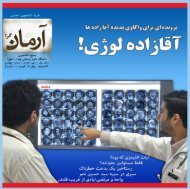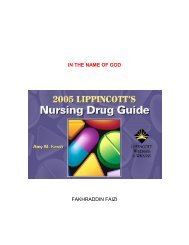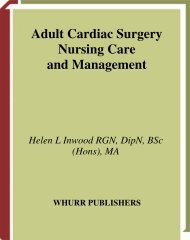Gastrointestinal Nursing.pdf
Gastrointestinal Nursing.pdf
Gastrointestinal Nursing.pdf
Create successful ePaper yourself
Turn your PDF publications into a flip-book with our unique Google optimized e-Paper software.
• excretion of waste products• making digestive and lubricating fluids• building of body tissues and body fluids• temperature control (i.e. evaporation of sweat)An Overview of the <strong>Gastrointestinal</strong> Tract 21If the body is depleted of fluid the signs and symptoms of dehydration mayappear; these include:• thirst• dry mouth• slack elastic skin• sunken eyes• low blood pressureThe body requires 2–3 litres of water every day and the amount of fluid takeninto the body must be balanced by the output.Mineral saltsMineral salts are essential for normal metabolism. Salts are produced by theaction of an acid on a mineral.An electrolyte is a dissolved salt (a mineral salt), which is capable of conductingelectricity. The two major electrolytes are sodium (Na + ) and potassium(K + ). The concentration of Na + is high in extracellular sites and low within cells(intracellular). In contrast K + is low in tissue fluids and high within cells. Acorrect balance of electrolytes is essential for normal function of body tissuesand fluids.Sodium is present in all tissues; it exists as sodium chloride in a concentrationof nine grams per litre (0.9%) in all extracellular fluids. Sodium is derivedfrom our food, particularly animal foodstuffs, and from the rock salt used incooking.Potassium is present in all tissue cells, where it replaces the sodium of bloodand tissue fluids and the source of the positively charged ions. Potassium isobtained from food, particularly plant foodstuffs.Calcium is present in all tissues, particularly in bone, teeth and blood, and isnecessary for the functioning of nerves and for muscle tone. It is obtainedchiefly from milk, cheese, eggs and green vegetables. Adults require 400–500 mgdaily.Iron is essential for the formation of the haemoglobin in red blood cells. It isobtained from green vegetables, particularly spinach and cabbage, egg yolkand red meats. Men require 10 mg daily; women require more, 10–15 mg daily,because of menstrual blood loss.Iodine is required for the formation of thyroxin by the thyroid gland. It isobtained from seafood and is also present in green vegetables.Calcium, iron and iodine are the only minerals which may be insufficient inthe diet.


